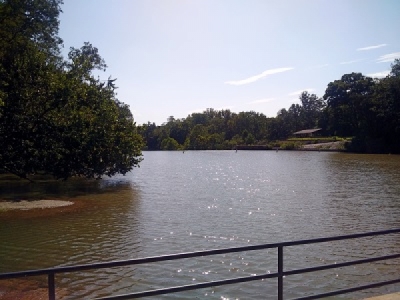
Posted on June 25, 2020
By Scott Dance, The Baltimore Sun
A $550 million class-action settlement announced Wednesday between Monsanto Co. and 13 governmental entities across the country includes money to clean up chemical contamination in the Patapsco and Back rivers and Lake Roland, in Baltimore and Baltimore County.
Lawyers for Baltimore City and Baltimore County were among those who argued Monsanto and related companies Pharmacia LLC and Solutia Inc. should pay for the cleanup of environmental toxins known as PCBs, man-made carcinogens that build up in the environment and make fish unsafe to eat.
Monsanto manufactured PCBs, or polychlorinated biphenyls, from the 1930s until 1977.
The settlement was one of several that Monsanto’s owner, German pharmaceutical company Bayer, announced Wednesday. Bayer said it’s paying up to $10.9 billion to settle current and potential future litigation over Monsanto’s weedkiller Roundup, which has faced numerous lawsuits over claims it causes cancer, and $1.22 billion to settle two further cases, including the class action focused on PCBs.
The water pollution class action still requires the approval of Judge Fernando M. Olguin in federal court in the Central District of California. It proposes a class of 2,528 governmental entities nationwide that would be eligible for payouts from the settlement fund.
In addition to $550 million in settlement funds, Bayer agreed to pay attorneys’ fees separately. The company said it would pay a total of approximately $650 million.
Acting City Solicitor Dana Moore said it has not been determined how much each member of the class action could receive, but she said because the city and county governments served as lead plaintiffs, they would be entitled to larger sums.
PCBs were long used in paints, inks, lubricants and electrical equipment until they were banned in the United States in 1979. They have been shown to cause a variety of health problems, according to the Environmental Protection Agency, including cancer and disease or dysfunction of the immune, reproductive, nervous and endocrine systems in animals. Human studies support evidence of similar harms in humans, EPA says.
Bayer officials said Monsanto legally manufactured PCBs until ceasing production in 1977.
Waterways in the Baltimore area found to be impaired with PCB contamination include Back River, Bear Creek, Curtis Creek, the Baltimore Harbor, tidal portions of Bird River and Gunpowder River, and the Lake Roland impoundment. Scientists are still searching for ways to get rid of them.
Baltimore City and Baltimore County signed on to the legal action in 2019, joining 11 West Coast governments: The cities of Spokane and Tacoma in Washington; the city of Portland, Oregon, and the Port of Portland; and the cities of Berkeley, Oakland, San Jose, Long Beach, San Diego and Chula Vista and Los Angeles County in California.
“This national resolution will empower over 2,500 cities, towns, counties, and independent port districts to better monitor, mitigate, and remediate these man-made carcinogens that impair the water quality in stormwater, sewer systems, sediments, and water bodies,” Baltimore Mayor Bernard C. “Jack” Young and Baltimore County Executive Johnny Olszewski Jr. said in a joint statement. “We’re proud to lead efforts to protect these natural resources and to protect waters throughout the state and nation.”
Among other Monsanto-related settlements Bayer announced Wednesday is a similar agreement on PCB contamination with the attorneys general of New Mexico, Washington and the District of Columbia. That $170 million settlement is separate from the class action that includes Baltimore and Baltimore County.
Source: The Baltimore Sun





